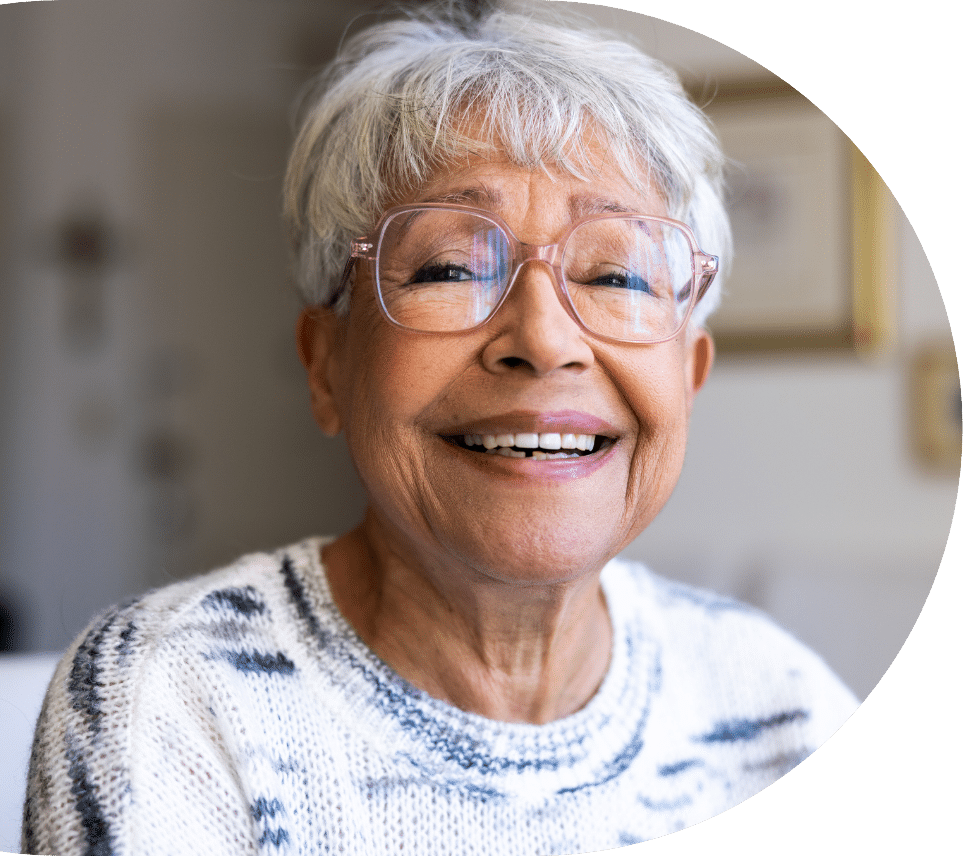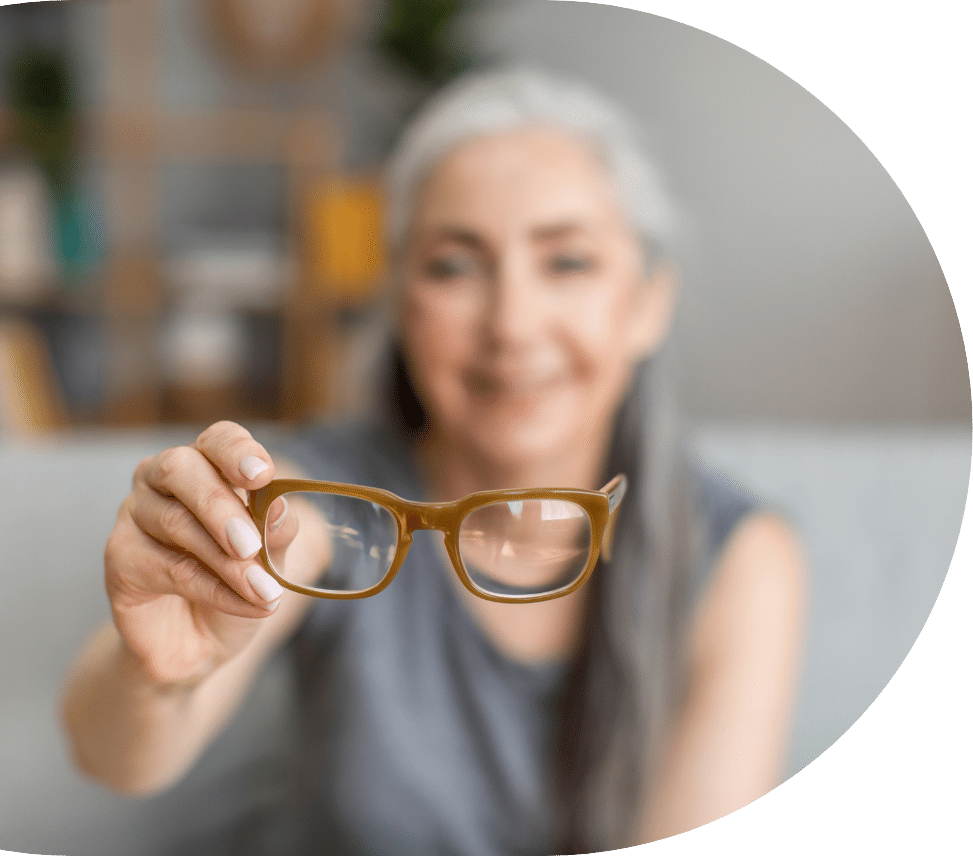Age-Related Vision Loss
Vision loss is a prevalent concern among seniors and can significantly impact their independence and quality of life. Understanding the causes, types, symptoms, and available treatment options is crucial for effectively managing age-related vision loss in older adults.

What Causes Vision Loss with Age?
Several factors can contribute to vision loss in seniors, including:
- Presbyopia: The loss of ability to see close objects or small print. Development of presbyopia is a normal process that happens slowly over a lifetime. Many people notice gradual changes after age 35 or 40. People with presbyopia often hold reading materials at arm’s length. Some people get headaches or “tired eyes” while reading or doing other close work. Vision can be improved with reading glasses or multifocal (bifocal) lenses if you have presbyopia.
- Age-related macular degeneration (AMD): A leading cause of vision loss among older adults, AMD affects the part of the retina responsible for sharp central vision.
- Cataracts: Clouding of the lens in the eye, leading to blurred vision and decreased visual acuity.
- Glaucoma: Damage to the optic nerve, often associated with elevated intraocular pressure, can result in peripheral vision loss and, if left untreated, complete blindness.
- Diabetic Retinopathy: A complication of diabetes that damages blood vessels in the retina, leading to vision impairment or blindness if not managed.
- Retinal Detachment: When the retina separates from the underlying tissue, it can cause sudden and severe vision loss.
- Dry Eyes: Dry eyes can be uncomfortable, causing itching, burning or even some loss of vision when tear glands can’t make enough tears or produce poor quality tears.

Different Types of Vision Loss in Seniors
Age-related vision loss can manifest in different forms, including:
- Central vision loss: Impairment in the ability to see objects directly in front, affecting tasks such as reading or recognizing faces.
- Peripheral vision loss: Decreased ability to see objects at the edges of the visual field, resulting in reduced spatial awareness.
- Night blindness: Difficulty seeing in low-light conditions, making it challenging to navigate in the dark.

What are the Signs of Vision Loss?
Signs and symptoms of vision loss in seniors can vary depending on the underlying cause:
- Blurred or distorted vision
- Loss of visual acuity
- Loss of color perception
- Difficulty seeing in low-light conditions
- Loss of contrast sensitivity
- Seeing floaters or flashes of light
- Redness, pain, or pressure in the eyes
- Sensitivity to glare or bright light
Age-Related Vision Loss Treatment Options
Regular eye examinations are essential for early detection, diagnosis, and treatment of eye conditions that can lead to vision loss. Treatment options for vision loss in senior healthcare depend on the underlying condition.
Age-Related Vison Loss Treatment and Prevention
Vision loss is a significant concern among seniors, affecting their daily activities and overall well-being. By understanding the causes, types, symptoms, and available treatment options, individuals and their caregivers can better navigate the challenges associated with vision loss. Regular eye examinations, early intervention, and appropriate management strategies are crucial in optimizing visual function and maintaining a high quality of life for seniors. At Greater Good Health, we address age-related vision loss through senior primary care. Contact us today to schedule an appointment.

Our Age-Related Vision Loss Services
Explore our age-related vision loss treatment and prevention services for older adults. Discover how our senior primary care services prioritize the overall wellbeing of out patients, including their eye health.